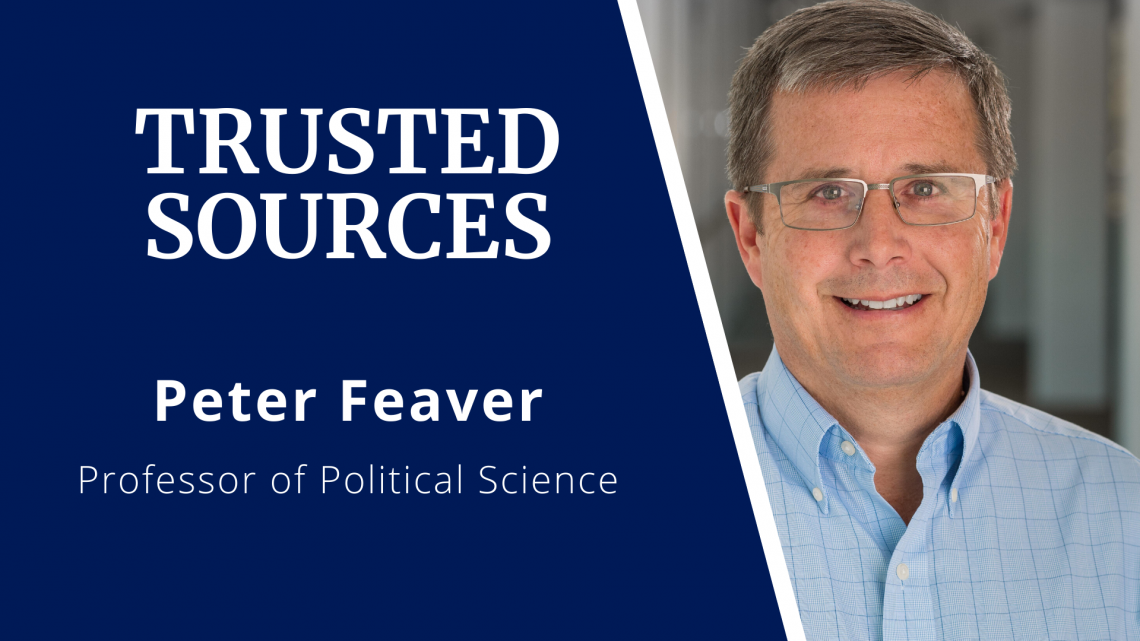Peter Feaver: Who Are Your Trusted Sources on COVID-19?
Foreign policy expert Peter Feaver shares how he stays informed about the pandemic.

As the COVID-19 pandemic continues to spread, the question of where to turn for solid information has never been more important. Many Duke experts are being approached now for their expertise and insight. But where do they turn for guidance and the latest information? Duke Today asked several Duke experts to share their preferred sources. We’ll share their insights over the coming weeks.
Peter Feaver, a professor of political science at the Sanford School of Public Policy and director of the Duke Program in American Grand Strategy, is an expert on national security and foreign policy. To stay abreast of the COVID-19 pandemic and its connection to his field, he relies on media, newsletters and personal sources.
MEDIA
For coverage of the politics and geopolitics of the pandemic, the establishment sources are the place to begin. For that perspective, I follow The New York Times, the Washington Post and Politico, among others.
BLOGS AND THINK TANKS
For more focus on the pandemic’s foreign policy aspects, it is helpful to review ForeignPolicy.com, ForeignAffairs.com and the Washington Post’s MonkeyCage column, as well as daily blasts from think tanks such as the Foundation for the Defense of Democracies, Center for a New American Security, Center for Strategic and International Studies, Brookings Institution, New America, and Hudson Institute and blogs such as War on the Rocks, Defense News and Lawfare.
PERSONAL SOURCES
There is no substitute for having thoughtful friends who are true believers on both sides of the partisan divide. They are “super spreaders” who flood me with what they consider to be the most compelling analysis on their side. Sampling those curated lists helps me avoid the large volume of commentary that is not based on rigorous analysis and is instead just cheerleading.